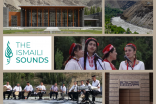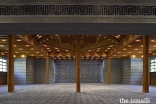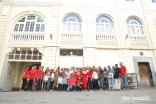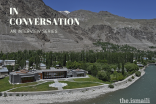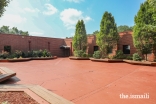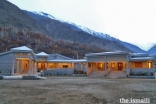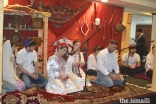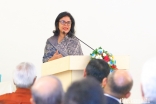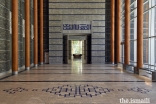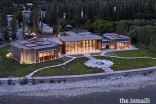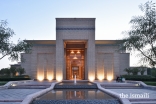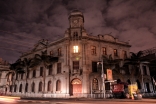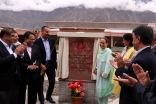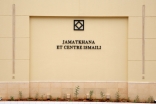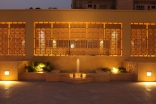Content Tagged with Ismaili Jamatkhanas
Innovation to Artificial Intelligence, Change and more - topics discussed at TEDx Sugar Land.
Participation in formal prayers in Ismaili jamatkhanas is restricted to those who pledge their allegiance (bay‘a) to the Ismaili Imam-of-the-Time. In Shia Islam, the authority of the Imam is rooted in the notion of hereditary succession from Prophet Muhammad (peace be upon him and his progeny), and the practices observed in jamatkhanas are the sole prerogative of the Imam-of-the-Time.
Situated in Spring, a Houston suburb, this Jamatkhana has architectural elements that are reflective of the values and vision of traditional Islamic architecture, such as symmetry, balance, light, and geometry.
The Ismaili is pleased to present Mazee Balayem, performed by the Yusuf Khirad Band at the Ismaili Jamatkhana and Centre in Khorog, Tajikistan, in 2019. The lyrics, attributed to Jalal al-Din Rumi, express the complexity of human existence and the importance of zikr. The musical composition is a blend of traditional Central Asian instruments such as the daf, doirah, rubab, and sehtar, and modern instruments including the keyboard and guitar.
Up close, a jewel is made up of a number of facets, each producing intriguing patterns, which help the gem to shine. Nestled amid flourishing trees, a flowing river, and a formidable mountain range, the Ismaili Jamatkhana and Centre in Khorog adds another facet to the ‘Jewel of the Pamir.’
The Houston branch is the third largest Consular Corps in the United States after Washington, DC and New York City. On Friday, June 7, 2019, the Ismaili Jamatkhana and Center hosted the inaugural Houston Consular Corps luncheon in Sugar Land, Texas. Over 90 countries were represented to engage in discussions on economic development by fostering foreign relations. Amongst the attendees were guest speakers Fort Bend County Judge KP George, Ambassador Juan B. Sosa, Consul General of Panama and Dean of the Consular Corps of Houston, and Jeffrey C. Wiley, President & CEO of the Fort Bend Economic Development Council.
There are many Jamatkhanas in India, a handful of which have celebrated over a century of existence. In this article we will explore three of India’s oldest Jamatkhanas, including their histories, architecture, and the role they play in the community today.
As part of a new interview series, Dr Sharofat Mamadambarova discusses the recent opening of the Ismaili Jamatkhana and Centre, Khorog; its construction, design, and the role it will fulfil for the Jamat in Tajikistan in the years ahead. The.Ismaili is pleased to publish this interview on the 3-month anniversary of the Jamatkhana's opening.
With the increased arrival of Ismailis into Atlanta in the 1980s, there was a need for a larger permanent building for the community's spiritual and social needs. The Atlanta Ismaili Jamatkhana, located in Decatur, opened in February 1989 as the first purpose-built Ismaili Jamatkhana in the United States.
Situated in the mountains of Northern Pakistan, two new Jamatkhanas were opened last month in the valleys of Ishkoman and Puniyal in Gilgit-Baltistan. The inauguration ceremonies were attended by over 5,000 members of the Jamat.
Jamatkhanas and Ismaili Centres play an important role in the lives of the Ismaili community in the USA but they also play a very important role in promoting diversity and pluralism in the communities where they exist.
The Ismaili Council for Bangladesh hosted an event earlier this year in which the notion of a cosmopolitan ethic was explored and discussed by a selection of esteemed speakers and guests, gathered within the beautiful setting of the Ismaili Jamatkhana and Centre in Dhaka.
Shimmering bright on the evening of 12 December 2018, the Ismaili Jamatkhana and Centre, Khorog opened its doors to the Jamat on the eve of Salgirah. At the foot of the Pamir mountains, and situated beside Khorog City Park and the Gunt River, the Centre provides a purpose-built space for congregation, contemplation, and contribution to civil society.
Nestled amid flourishing trees, a flowing river, and a formidable mountain range, the newly opened Ismaili Jamatkhana and Centre in Khorog is a long-awaited blessing for the Jamat of Tajikistan.
Good architecture serves its functional purpose and is structurally sound. Great architecture fits seamlessly into its surroundings and awakens the spirit of everyone who interacts with it. Decatur, Georgia, is home to the first permanent Jamatkhana in the United States. It was designed by Farouk Noormohamed, an architect whose 33-year career portfolio includes designing multiple Aga Khan University buildings in Africa and Pakistan, and the award-winning Ismaili Centre in Dushanbe, Tajikistan.
Islamabad, 25 May 2016 — Princess Zahra and Prince Rahim were in Gilgit yesterday, where they inaugurated a 50-bed medical centre that will serve as a healthcare hub for the surrounding region. They also visited other AKDN programmes and a Jamatkhana in the area.
Dhaka, 30 July 2015 — Government leaders and members of the diplomatic corps joined AKDN staff and volunteers for an Imamat Day reception at the Ismaili Jamatkhana and Centre. The event also marked the first anniversary of the establishment of the Office of the AKDN Resident Representative in Bangladesh.
The opening of the Ismaili Jamatkhana and Centre, Kinshasa on 16 August 2013 was a historic occasion for Ismaili Muslims in the Democratic Republic of Congo and around the world.
The Ismaili Jamatkhana and Centre, Kinshasa is a contemporary complex that blends timeless traditional design principles. It provides an environment for spiritual contemplation and reflection, and represents a new milestone in the long history of the Congolese Jamat, which continues to build on its pioneering spirit in a country of growing opportunity.





